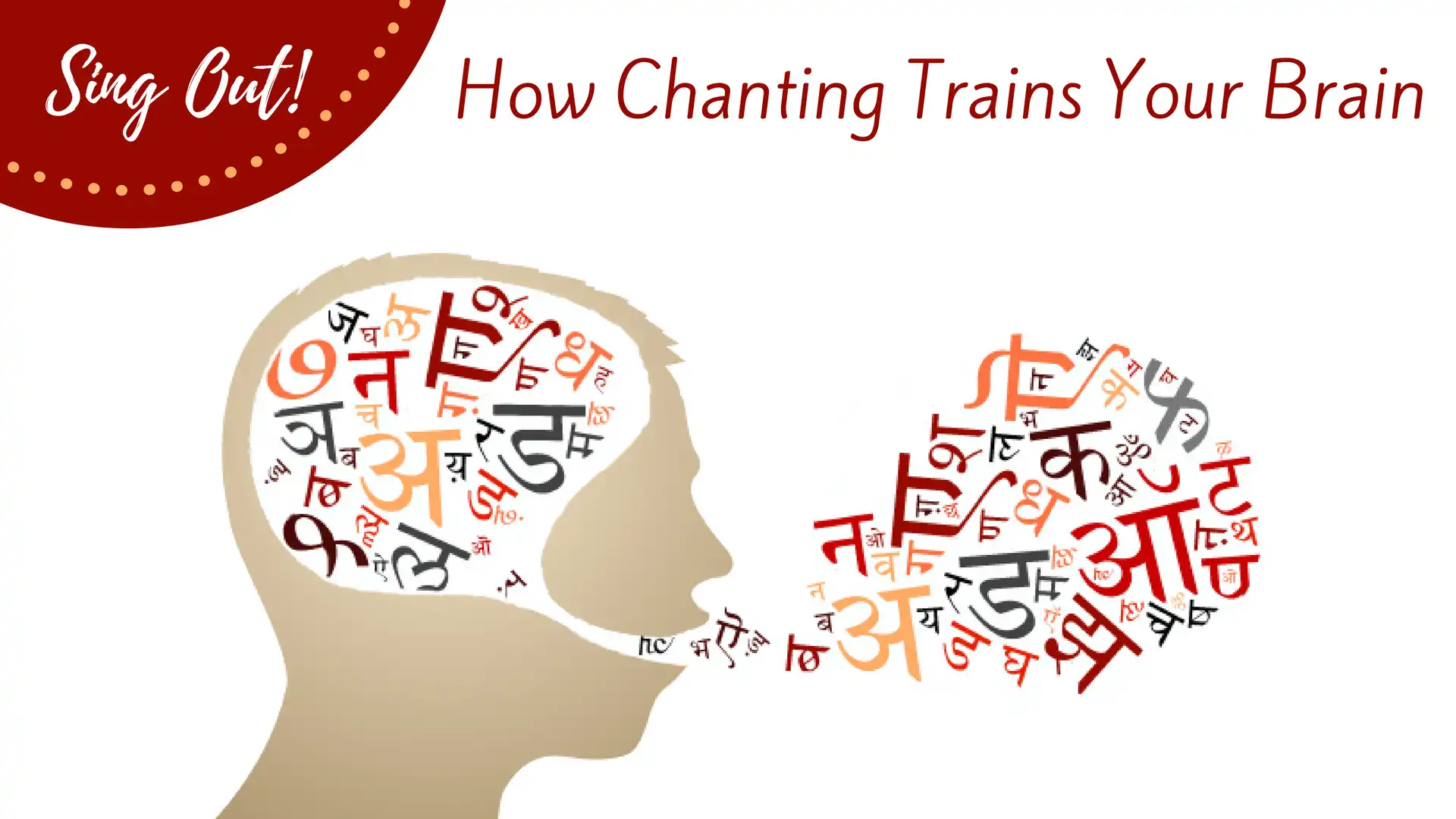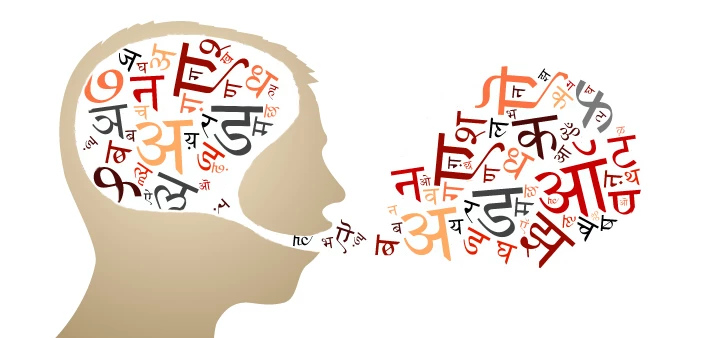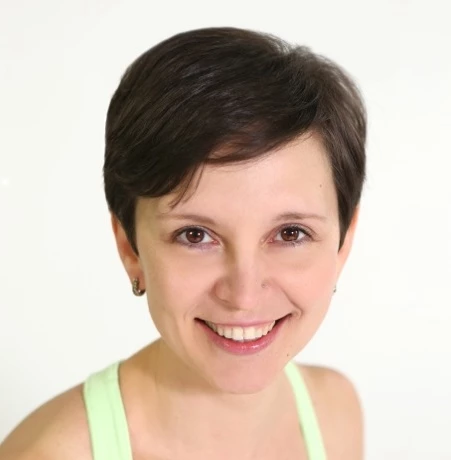Sing Out! How Chanting Trains Your Brain

My family and I went to Spain last summer, so not long ago before we left I started taking Spanish lessons. And even though I already speak two languages, boy was it difficult! I could feel my brain at times quietly resisting the challenge and at times actively rebelling. And the problem was not merely in memorizing unfamiliar words; it was also asking the brain to work in a slightly different way, since many of the concepts in a foreign language are different.
But this is exactly the reason learning a foreign language is often recommended to keep the brain agile. It doesn’t just train memory and encourage learning, but it also opens your mind to new ways of looking at things. Barbara Zurer Pearson in her book, Raising a Bilingual Child, summarizes the benefits of learning a foreign language. Some of them are:
-
Divergent thinking: “Another area of thinking where bilinguals have been shown to excel is divergent thinking, the ability to come up with many different solutions rather than just one. Divergent thinking is considered to be one of the basic elements of creativity.”
-
Selective attention: “With different language pairs, at different ages, bilinguals consistently excel in selective attention. Bilinguals do better than monolinguals on tests that require them to focus on just one or two aspects of a task while suppressing attention to its other aspects.”
-
Open mind: “The two languages of bilinguals focus their attention on more aspects of events, so they are able to make a wider set of distinctions in perceiving the world. Bilinguals also profit from having perspectives within more than one language, which can make them sensitive to the fact that each view is only one of many possible views.”
Learning foreign language challenges and stimulates your intellectual mind in a number of ways and you can use this effectively in your yoga practice when you are trying to change your way of thinking. No, I am not asking you to sign up for a foreign language course (although it could be fun!), but to experiment with chanting in your yoga practice.
Yogic Chanting and the Koshas
Chanting is considered one of the two most effective tools for working on the manomaya (intellectual mind) level in yoga’s panchamaya system. One reason for that is that you usually chant in a foreign language (Sanskrit). This helps you get some of the benefits listed above: facilitating learning, strengthening memory, promoting divergent thinking, training your attention and expanding your mental horizons.

How Chanting Benefits Your Yoga Practice
-
Cognitive: It means something. You can use the meaning of the chant to promote a specific mental state or resolve nagging issues.
-
Inherent: In yoga, it is believed that certain sounds have inherent meaning on the level of symbol and vibration, whether or not you understand it consciously. For example, in many cultures, the syllable “ma” is associated with mother.
-
Energetic: Sound has an energetic effect as well, based on pitch and volume. You can also use a chant to measure the length of your inhalation and exhalation. Depending on the relative length of the inhalation and exhalation part of the breath, it will have a brhmana (building) or langhana (eliminatory) effect on the system.
Chanting: Detox for Your Brain
According to my teacher Gary Kraftsow, one of the most useful things that we can accomplish with chanting is to use it as a “digestive enzyme to metabolize our neurosis.” We already established that constant mental activity is your brain’s way of processing incoming information. So you cannot shut it down, but you can channel it.
You know how sometimes you get some song stuck in your head? You just keep singing it in a loop, overriding other loops in your brain. But instead of an annoying song, you can choose a chant that actually means something to you, that helps you feel uplifted. It can be anything you like—a line from a poem, a phrase, a quote, a mantra. It can be in any language you like, although you are more likely to focus if it’s not in your native language; otherwise, it’s too easy to go on autopilot. Link the chant to your breath, repeat it for a while and before you know it the negative pattern that runs through your mind is replaced by something positive. Using chanting in your yoga practice is very effective for resolving issues on the level of the intellectual mind.
More about pain from Olga Kabel – Yoga and the 5 Kosha Model-Healing Chronic Pain on all Five Layers of Being.
Study core strength and so much more with Olga Kabel and YogaUOnline in their course – Yoga for Posture Improvement with Focus on Core Strengthening and Axial Extension.
Reprinted with permission from Sequence Wiz.
 Educated as a school teacher, Olga Kabel has been teaching yoga for over 14 years. She completed multiple Yoga Teacher Training Programs but discovered the strongest connection to the Krishnamacharya/ T.K.V. Desikachar lineage. She had studied with Gary Kraftsow and American Viniyoga Institute (2004-2006) and received her Viniyoga Teacher diploma in July 2006 becoming an AVI-certified Yoga Therapist in April 2011. Olga is a founder and managing director of Sequence Wiz- a web-based yoga sequence builder that assists yoga teachers and yoga therapists in creating and organizing yoga practices. It also features simple, informational articles on how to sequence yoga practices for maximum effectiveness. Olga strongly believes in the healing power of this ancient discipline on every level: physical, psychological, and spiritual. She strives to make yoga practices accessible to students of any age, physical ability and medical history specializing in helping her students relieve muscle aches and pains, manage stress and anxiety, and develop mental focus.
Educated as a school teacher, Olga Kabel has been teaching yoga for over 14 years. She completed multiple Yoga Teacher Training Programs but discovered the strongest connection to the Krishnamacharya/ T.K.V. Desikachar lineage. She had studied with Gary Kraftsow and American Viniyoga Institute (2004-2006) and received her Viniyoga Teacher diploma in July 2006 becoming an AVI-certified Yoga Therapist in April 2011. Olga is a founder and managing director of Sequence Wiz- a web-based yoga sequence builder that assists yoga teachers and yoga therapists in creating and organizing yoga practices. It also features simple, informational articles on how to sequence yoga practices for maximum effectiveness. Olga strongly believes in the healing power of this ancient discipline on every level: physical, psychological, and spiritual. She strives to make yoga practices accessible to students of any age, physical ability and medical history specializing in helping her students relieve muscle aches and pains, manage stress and anxiety, and develop mental focus.
Resources
Raising a Bilingual Child by Barbara Zurer Pearson


